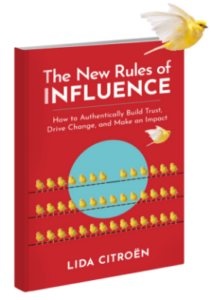Let’s talk about risk.

Risk is understood to be the exposure (or potential exposure) to something that can cause harm. When we believe something bad can happen to us – emotionally, physically, reputationally, in our career, or to our mental health or well-being – we consider it to be risky.
Also baked into an understanding of risk (while not the dictionary version) is the potential for opportunity, possibility, and positive benefit. Weighing the risk of harm against the possibility of something good happening is how we evaluate risk. When we fall in love, we risk having our heart broken. When we quit one job for a different one, we risk making a bad choice.
In your career, you’ll encounter risks, such as:
- Volunteering to lead a high profile project or initiative (where you could fail)
- Turning down a promotion because it pulls you away from family too much
- Asking for a raise, knowing you could have your request denied
- Stretching outside of your comfort zone, what you’ve been trained in, and what you know, to try something completely new and different
While daredevils would tell you the adrenaline rush from fully pursuing risk is worth every bit of the possible harm that could come to you, in your career there are some ways to anticipate and understand risk and how it can serve you.
Step One: Your Career Goals
Start with a career direction and goal in mind. Do you want to serve others? Are you looking for a career that offers more flexibility and independence? Do you want to make a lot of money? Having a sense of the direction you’re headed in is vital to knowing how, when, and where to take risks.
Bonus Tip: When you feel like something bigger than you is calling your name, will you answer—even if you’re afraid? Learn how to pursue your purpose and find the inspiration you need to take action. Watch this conversation👇
Step Two: Your Values
Write down your values (what you believe deeply in) and your non-negotiables. What values must align for you with your employer, clients, peers, and industry for your career to have meaning? What boundaries won’t you cross for any reason? Clarify those instead of assuming everyone sees life the same way. This list becomes a north star for your career direction, keeping you on the right path.
Step Three: Opportunities
As you encounter a choice (such as a new job, job transfer, promotion, project, or any work-related opportunity,) evaluate the opportunity in terms of your career direction and goals, and your values and non-negotiables. Does everything line up? Great: Then continue to Step 4. They don’t align? Then you have your answer right there and you stop. If the benefits (i.e. money, job title) you’d gain from taking the risk are less than the potential costs (e.g., compromising your values), the value is not high enough.
Bonus TIP: Have you ever heard of the term “being in flow”? Learn how to make decisions and work in flow in this great conversation (watch below)👇
Step Four: Other Factors
With this opportunity aligned with your values and career goals, now you can weigh in on other attributes: Will it offer you growth, visibility, insight, learning, training, or something else of benefit to your career? Can you see the possibilities as more positive than negative from pursuing the risk?
If a risk is not aligned with who you are and where you’re headed, no amount of money or fame will make it so.
Resist the urge to compromise your goals and values for a short-term result, knowing that the long game is where true and meaningful career success is found.
**Partially extracted from my article on Military(dot)com


